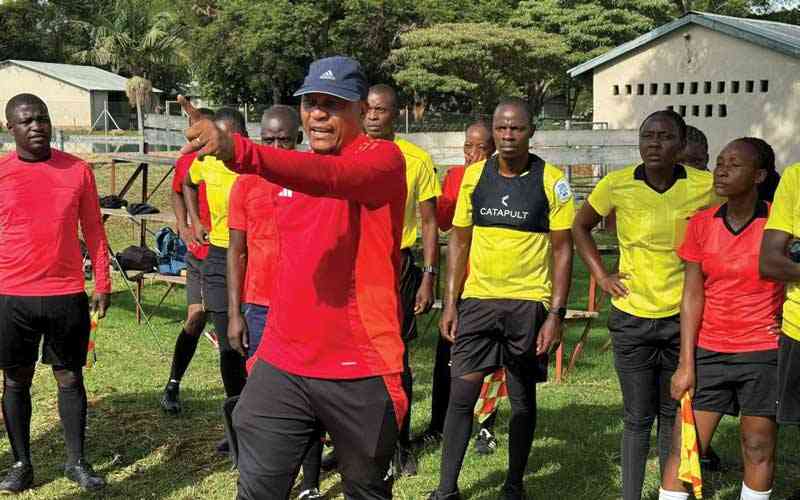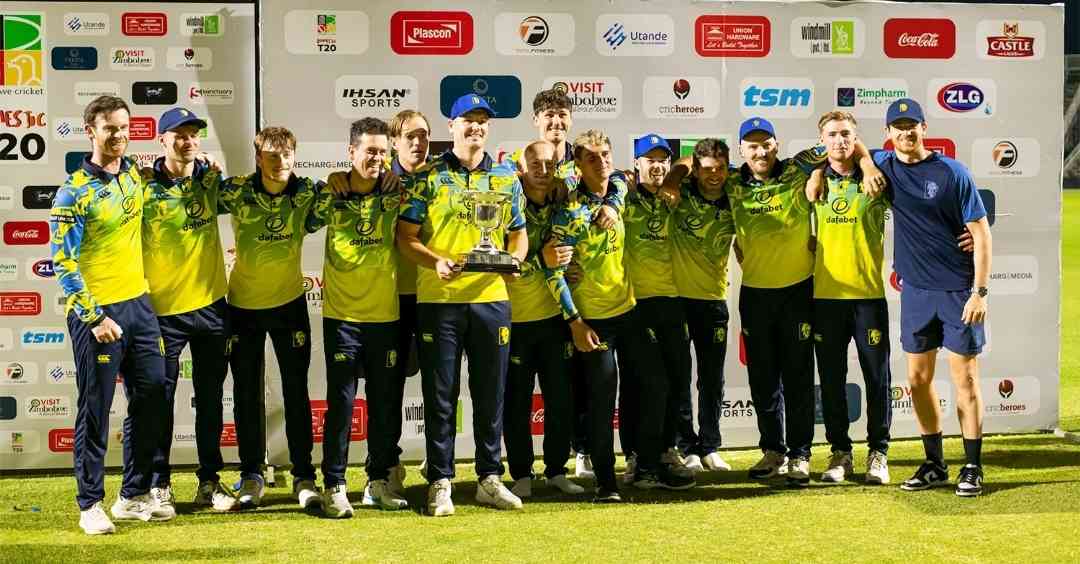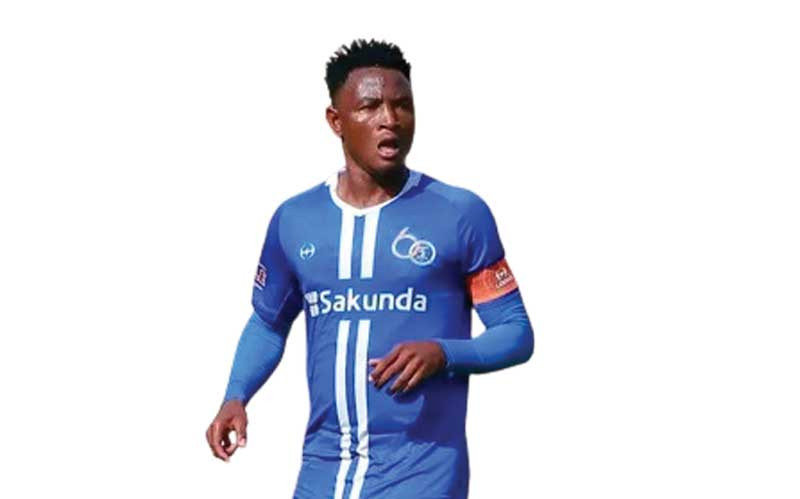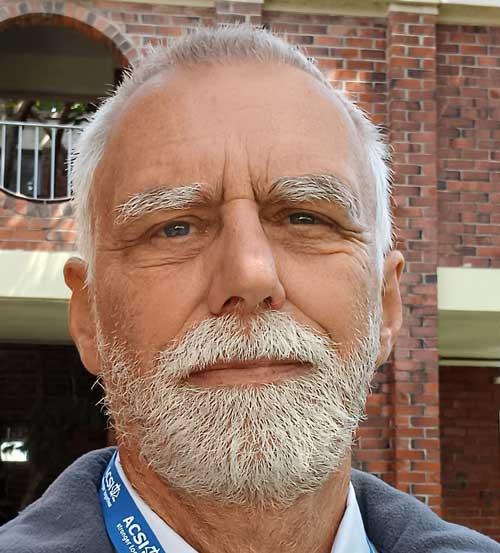
Rio de Janeiro is preparing to host the world for next year’s summer Olympic Games.
BY MICHAEL MADYIRA
It is exactly a year before the quadrennial global sporting fiesta begins and so far for Zimbabwe, it is only Kirsty Coventry who has qualified for the games.
At the last edition in London, Zimbabwe sent a record lowest number of athletes (seven in four disciplines) in their Olympics history.
Now the focus is on how many athletes each national association will be able to send to showcase the country’s sporting talent in Rio.
For most countries, athletics provides most contestants at the games and is the medal cow. But Zimbabwe hit a low in London where there were no track or field athletes.
The country was represented by a paltry three marathoners (Cuthbert Nyasango, Wirimai Juwawo and Sharon Tavengwa) to equal the 1988 record where the same number was sent to Seoul, South Korea.
National Athletics Association of Zimbabwe (Naaz) director of coaching and talent identification and development, Phakamile Lisimati has conceded that the London outing was a loud call for them to press for a much improved campaign for the coming edition.
- Chamisa under fire over US$120K donation
- Mavhunga puts DeMbare into Chibuku quarterfinals
- Pension funds bet on Cabora Bassa oilfields
- Councils defy govt fire tender directive
Keep Reading
“Failing to meet targets we had set the last time is definitely a big concern for us,” Lisimati said.
“It was a big disappointment for us. This time around, we are looking at sending at least 10 athletes for the Olympics and that is why we are putting more emphasis on sending large numbers for qualifying events. The major challenge for us, however, is lack of funds to send our athletes to these competitions. “But when you look at most of our athletes, there is a lot of potential and some of them have been getting close to qualifying standards in their respective events.” This month’s World Athletics Championships to be held in Beijing, China, will mark the beginning of a serious push to qualify for Rio. Four athletes have so far qualified for the World Championships. They are marathon runners, Nyasango, Gilbert Mutandiro, Cephas Pasipamire and sprinter Tatenda Tsumba. Next month’s Africa Games are also another big event that will see athletes bidding to make it to the Olympics. The likes of Francis Zimwara, Keegan Cooke, Brian Mada, Ngoni Makusha, Gabriel Mvumvure as well as female athletes Olivia Chitate, Maryjoy Mudyiravanji, Nomagugu Ndlovu and Caroline Mhandu will be contesting for a ticket to Rio.
The World Junior Championships to be held in Kazan, Russia, next July will also serve as an opportunity for Under-19 athletes to qualify for the Olympics, just a month before Rio de Janeiro explodes.
Retired Zimbabwean hurdler Ken Harnden, who represented the country at the 1996 and 2000 Olympics, however feels Naaz is not doing enough to support athletes’ rise from grassroots level.
He also feels it is possible for Makusha and Mvumvure to qualify for Rio if they are not blighted by injuries as they were last time.
Harnden has coached sprinter and long jumper Makusha as well as Brian Dzingai at Florida State University.
“I do not think we will have good representation at next year’s Olympic Games. We have two great athletes [Makusha and Mvumvure] and both have had injuries, but Naaz and ZOC [Zimbabwe Olympic Committee] have refused to help them financially. It is possible for them to qualify for the Olympics if there is no major injury on either of them,” he said.
“I know there is some young talent in Zimbabwe. We need more qualified high school coaches there, but most importantly, we need these kids to be educated so we can get them to the US. The National Collegiate Athletic Association [NCAA] is a free development system.
“I also feel we have made no effort to promote the sport in young women, and there is so much talent in the ladies in our country.”
Last year, ZOC set up the $250 000 Olympic Athlete Scholarships programme to assist 10 selected athletes in the qualifying and preparation process.
Recipients of this athlete-support grant included Juwawo, Makusha, Mvuvure and Nyasango.
Rowers Peter Purcell-Gilpin and Micheen Thornycroft as well as swimmers Coventry, Chad Idensohn, James Lawson and Robyn Lee form the remainder of the athletes in the programme.
This scholarship scheme is aimed at assisting athletes in their travelling for qualifying or preparation for competitions, coaching as well as better training facilities.
As the country battles to provide more athletes at the Olympics, the Sports and Recreation Commission (SRC) appears to have taken a backseat approach to the games.
Stung by Zimbabwe’s record lowest number of athletes at the London Games as well as failure to get a medal, SRC director-general Charles Nhemachena emphasised on establishing a National Sports Strategic Plan to strengthen all disciplines, but it appears it was all just talk.
“The fact that we are failing to get medals is an indicator of inadequate preparations and resources. We need to start investing in sport in a meaningful way,” Nhemachena said in 2012.
“But most importantly, we should draw a National Sports Strategic Plan because countries that do well at the Olympics do not leave preparations to individuals, but to the government,” he said.
Three years later, nothing of that sort has been pursued. Aquatic disciplines — swimming and rowing — so far appear more serious for Rio.
Lawson and Sean Gunn were last week at the Fina World Swimming Championships in Russia seeking qualification and Coventry succeeded at that competition.
After debuting at the 2012 Olympics, Thornycroft has been attending World Rowing Cups, while James Fraser-Mackenzie is also keen to return to the Games.
“My next race is in September [World Rowing Championships, Aiguebelette, France]. I have to be in the top nine and it will be a tough fight to qualify through the World Championships. But that is what I am aiming for,” Thornycroft said.
“If I can pull four good races together, I should be fast enough. If I do not make it there, then I will race at the African Olympic qualifiers in October in Tunisia. It is much easier to qualify through Africa as I have won the Championships since 2011. Here, I have to come in the top four boats to qualify.”
Purcell-Gilpin will also race at both the World and Africa Championships, but has set his sights on the Rio ticket through the continental regatta.
Interestingly, teenage rowers Kyle Hinde, Megan Dickens, Jennifer Lorimer, Stuart Duncan and Paul Zwanikken are currently experiencing the Rio waters at the World Rowing Junior Championships where Tunisia is the only other African country taking part.
Hinde also participated at last year’s Youth Olympic Games in China.
In football, there were bright chances for the Under-23s to qualify for Rio, but Zifa spoiled a flowing Olympic project by their endless bungling which led to poor preparations.
Zifa has done the same for the Mighty Warriors who now have to pull a Houdini Act to overturn a 3-0 deficit against Ivory Coast two weeks from today.
Rugby Sevens features for the first time ever at the Olympics and Zimbabwe looks to have a big opportunity to qualify.
The Cheetahs will in November take part in the Rugby Africa Men’s Sevens Championships in Johannesburg, South Africa, from where the top team directly qualifies to Rio, while the second, third and fourth place teams will have to play in the Olympic Qualification Tournament.
Zimbabwe has before faced no challenges against teams at the Seven Championships and Daniel Hondo’s side might emerge top.
In triathlon, following the retirement of Chris Felgate who twice competed at the Olympics, a soul-searching mission is underway for his replacement.
The men’s basketball team faces a huge task to qualify for Rio as later this month they will compete at AfroBasket Championships in Tunisia from where the winner attains an Olympic ticket.











